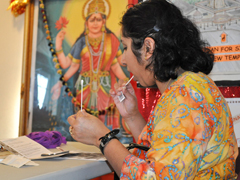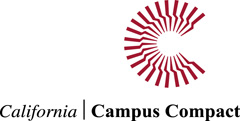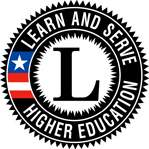100K Cheeks
If you were given the opportunity to save a life, would you?
A group of Stanford students hopes the answer is yes, and is leading a truly remarkable effort to save hundreds—possibly thousands—of lives.
You probably know that Leukemia is a form of cancer of the blood or bone marrow. You might know that bone marrow transplants are a form of treatment. But did you know that certain populations are dramatically under-represented in existing bone marrow registries? The story that gave rise to this effort is that of Sameer Bhatia, a Stanford undergrad-turned-entrepreneur. Learn more about Sameer's story.
 Because of this story (and, sadly, many others), the Haas Center is working with
Professor Jennifer Aaker and a team of student advisors to develop a large-scale bone marrow registrant drive. One Hundred Thousand Cheeks is a Stanford-based student
group dedicated to getting 100,000 people signed up for with the national bone
marrow donor registry by June 2012. Specifically, we seek to address the severe
shortage of South Asian donors in the registry, as there is a meager 1 in
20,000 chance for a potential South Asian recipient to find a match.
Because of this story (and, sadly, many others), the Haas Center is working with
Professor Jennifer Aaker and a team of student advisors to develop a large-scale bone marrow registrant drive. One Hundred Thousand Cheeks is a Stanford-based student
group dedicated to getting 100,000 people signed up for with the national bone
marrow donor registry by June 2012. Specifically, we seek to address the severe
shortage of South Asian donors in the registry, as there is a meager 1 in
20,000 chance for a potential South Asian recipient to find a match.
Resonating with the central idea behind Professor Jennifer Aaker’s The Dragonfly Effect, we plan to harness social media, combined with on-the-ground efforts, to achieve our goal of getting one hundred thousand individuals into the National Bone Marrow Registry this year.
To design and execute the effort, we will be working with OpenIDEO, a crowd-sourcing platform dedicated to the generation of solutions to social issues (and a project of the world-renowned design company IDEO). This collaboration will allow us to tap a community of designers to solve the issue of donor diversification and to help improve the lives of cancer patients.
The Problem
- The South Asian demographic is dramatically under-represented in existing bone marrow registries – 1 in 20,000 chance for potential recipients.
- Registries like Be the Match simply do not have the financial resources for targeting populations that are difficult to reach.
- Constriction of financial resources due to the recent economic downturn exacerbates this problem by not permitting national registries to institute the number of demographic-focused drives needed to ameliorate this problem.
 Get Involved
Get Involved
Register online
Registering yourself as a bone marrow donor and a potential lifesaver is a remarkably easy process. If you live in the United States, it can even be done from the comfort of your own home with a home registration kit. A few minutes of you time swabbing your cheeks could save the life of another human being.
Help us with our challenge on OpenIDEO
Join us on Facebook
Follow us on Twitter
Supporters
We gratefully acknowledge the following organizations for their significant support in making this program possible.


Copyright ©2012 Stanford University. Terms of Use | Copyright Complaints | Report a Problem with this site.

